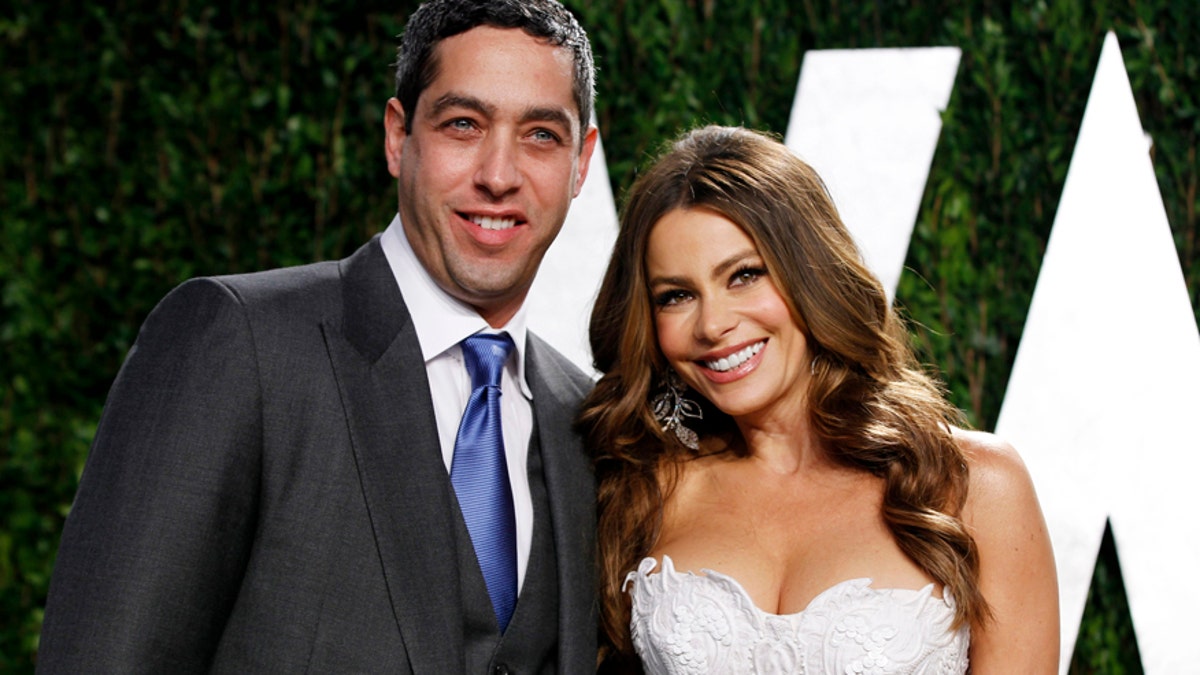
Actress Sofia Vergara and Nick Loeb arrive at the 2012 Vanity Fair Oscar party in West Hollywood, California February 26, 2012. (Reuters)
Sofia Vergara is being sued — by her frozen embryos!
I’ll explain.
In 2013 Vergara and her fiancé, Nicholas Loeb, underwent in-vitro fertilization and stored the frozen embryos in a California clinic. The couple entered into an agreement stating that they mutually agreed to bring the embryos to term, but there was no mention of what would happen if they broke up.
Spending much of their time in Louisiana, they began interviewing potential surrogates and set up a trust fund for the unborn children. They even gave the embryos names: Emma and Isabella.
And then, in 2014, the couple broke up. Their agreement, signed in California, didn’t cover this eventuality. Loeb sued Vergara for custody of the embryos, but that case was dropped.
Now, at the close of 2016, a case of first impression — a case that has never arisen before and requires an interpretation of the law — is being brought in Louisiana, where the law confers personhood on embryos, giving them the explicit right to sue and be sued. The law prohibits ownership or destruction of the embryos, and any disputes over them must be resolved in their “best interests,” which, it would seem to me, would always be to let them be implanted in a womb.
The embryos are represented by attorney Catherine Foster, the president of Sound Legal Group, a public interest group in Virginia that advocates for the right to life. (I tried to contact Vergara’s attorney, but did not receive a reply.) Foster told me that Vergara and Loeb had spent much of their relationship in Louisiana, had planned for their life while in Louisiana and had broken up in Louisiana, so jurisdiction would hold up in the state.
She also said that this case is about the rights of the embryos, not the rights of Loeb and Vergara.
“There is no abortion implication here, no right to choose for a woman, because the embryos are not inside a woman,” Foster said. “So it is not about a woman’s right to choose. It is about allowing the smallest and weakest amongst us having the chance to live.”
To be born, the embryos would have to be implanted in a womb, and that would mean a woman would make the choice to carry them to term. Not allowing the embryos a chance to be born, Foster said, would take away their right, among other things, to inherit the trust that Loeb and Vergara set up for them.
Lawsuits over embryo custody, though rare, are not new. In 2012, a Pennsylvania appeals court awarded frozen embryos to a cancer survivor over the objection of her ex-boyfriend.
The Louisiana lawsuit gives Human Embryos 4B-A, also known as Emma and Isabella, the right to sue their biological mother to save their own potential lives.
For now, as the legal battle moves along, the embryos remain frozen in a tank in California.
Looking strictly at Louisiana law and the legal test of "best interest if the embryo" it's hard to imagine a court deciding for their destruction, assuming, that is, there is a woman to bring them to birth. Otherwise, the best interest of the embryos would take back seat to s surrogacy woman's right to choose.
